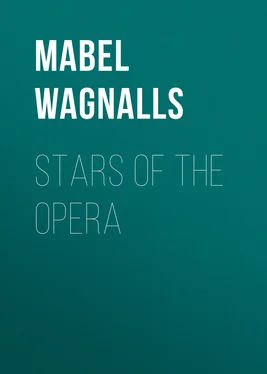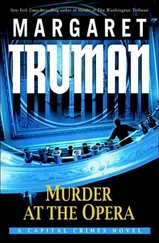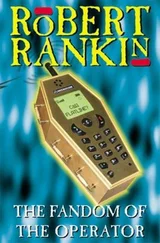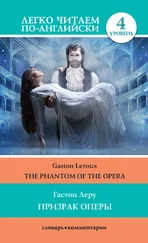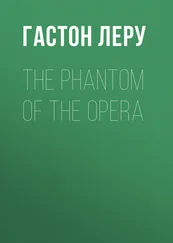Mabel Wagnalls - Stars of the Opera
Здесь есть возможность читать онлайн «Mabel Wagnalls - Stars of the Opera» — ознакомительный отрывок электронной книги совершенно бесплатно, а после прочтения отрывка купить полную версию. В некоторых случаях можно слушать аудио, скачать через торрент в формате fb2 и присутствует краткое содержание. Жанр: foreign_antique, foreign_home, music_dancing, на английском языке. Описание произведения, (предисловие) а так же отзывы посетителей доступны на портале библиотеки ЛибКат.
- Название:Stars of the Opera
- Автор:
- Жанр:
- Год:неизвестен
- ISBN:нет данных
- Рейтинг книги:5 / 5. Голосов: 1
-
Избранное:Добавить в избранное
- Отзывы:
-
Ваша оценка:
- 100
- 1
- 2
- 3
- 4
- 5
Stars of the Opera: краткое содержание, описание и аннотация
Предлагаем к чтению аннотацию, описание, краткое содержание или предисловие (зависит от того, что написал сам автор книги «Stars of the Opera»). Если вы не нашли необходимую информацию о книге — напишите в комментариях, мы постараемся отыскать её.
Stars of the Opera — читать онлайн ознакомительный отрывок
Ниже представлен текст книги, разбитый по страницам. Система сохранения места последней прочитанной страницы, позволяет с удобством читать онлайн бесплатно книгу «Stars of the Opera», без необходимости каждый раз заново искать на чём Вы остановились. Поставьте закладку, и сможете в любой момент перейти на страницу, на которой закончили чтение.
Интервал:
Закладка:
There will probably be many guests in those halls; but even if the gifted owner lived there alone it would always seem peopled by a large assemblage, for Madame Eames studies much during these vacations, and the mystic characters of her repertoire may be said to hover ever near. The castle is to be furnished with rich hangings and historic trophies; but most priceless of all should be counted the music furnished by her own rare voice. This will soar out and reecho at all hours; sometimes a memory of Elsa, and again a thought of Sieglinde.
It were indeed a pity to fling the stray tones of a great voice upon crude walls and cramped quarters; let them rather resound and reverberate, and perchance be preserved, by the listening atoms of carved wood and chiseled stone.
If the earth is God's garden and we are the plants that grow, then Madame Eames must be likened to a rare orchid, radiant in the sunshine of great success, and showered with all possible blessings.
"FAUST"
Faust is the opera in which Madame Eames has appeared most often in this country. No less than sixteen composers have used Goethe's poem as a libretto. Many of these works are excellent, and frequently we hear excerpts from them in our concerts. But Gounod has clad the words in musical raiment of such surpassing loveliness that he has almost robbed Goethe of his masterpiece. At this day, on hearing the name Faust we think of the opera simultaneously with, if not before, the poem. He has made of it a "grand opera" in every sense; and yet so abounding in melody that even an untrained ear is captured.
There is no overture. It is a fact without a cause that some operas have overtures and some have not. "Faust" opens with a short orchestral prelude that is somber and subdued—quite suggestive of the doubt and darkness that characterize the scene upon which the curtain rises.
Faust, the philosopher, the student, is seated in his cell, surrounded by books, parchments, chemicals, skulls, and hour-glasses. He has grown old in his delving after the mysteries, and even now he has devoted the whole night to study. The lamp burns low, and all about him is dark and gloomy. He closes his book sadly, and exclaims in tones that seem spontaneous, but are, nevertheless, in accurate rhythm with the orchestra, "In vain!" He does not find the knowledge he seeks; his investigations are without avail. It seems strange to hear these laments sounded by a tenor voice; but this trifling incongruity of high tones and old age does not last long. The character Faust is one of the greatest tenor rôles.
His soliloquy is presently broken in upon by a chorus behind the scenes. It is the song of reapers going to their daily work. The morning light streams in at the window which Faust throws open as he listens. But sunshine itself is not brighter than that song. It is so joyous and light-hearted that the listener fairly inhales the dew-laden air of the fields. This first melody in the opera is as perfect a morceau for its size as was ever written. The solitaire in his cell is also affected by the radiant song, and he envies the reapers for their contentment and for their youth. Yes, youth is what he longs for.
Altho Faust has declared his study to be "in vain," he has, nevertheless, acquired the accomplishment of being able to call up Mephistopheles (this is the operatic name for the great demon), and in his present despair he resorts to this power. Mephisto appears without delay. Flaming colors and a bass voice are the essential attributes of this great character. It seems rather hard on our artists who sing to low G that a bass voice is so often chosen to represent iniquity; but such happens to be the case. Mephisto is invariably clad in red from head to toe; exaggerated eyebrows and a fantastic cap with unobtrusive horns complete his diabolical appearance.
In a continuous flow of harmony, Faust informs his visitor of his wants, and Mephisto promptly states his conditions: for the price of his soul after death the philosopher shall now be granted his youth. Faust hesitates at this, whereupon the wily demon causes him to behold a vision. A bright light at the back of the stage suddenly reveals the lovely Marguerite at her spinning-wheel. While the picture lasts there is heard in the orchestra a suggestion of one of the themes that come afterward in the love-scene of the opera; this is accompanied by a soft tremolo on the violins. Forest scenes, moonlight, and dreams are very often represented in music by a violin tremolo. When the vision passes away, Faust is decided, and he drinks the potion Mephistopheles prescribes. Presto! The gray hair and beard disappear; the long robe falls off, and Faust is a young man—tall and handsome, as a tenor should be. He comes forward with an elastic step and sings of youth and its joys, which now are his. The music has undergone a metamorphosis like the singer. It throbs with a life and vigor which were lacking before; and this final song of the first act is one of the best tenor solos in the opera.
The second act is chiefly remarkable for its choruses. It is called the Kyrmess, and represents a street thronged with villagers in festive array and mood. They dance and sing in honor of their soldiers, who start this day to war. The opening chorus is divided among the students, girls, soldiers, and citizens, the latter being represented by old men, who come forward and sing their delightful refrain in thin, piping voices. Every phrase of this first chorus is a surprise, and each one seems more fascinating than the preceding. It is all in a rapid, tripping tempo, and fairly bubbles over with good humor.
In this act we are introduced to all the principal characters. Siebel, the village youth who loves Marguerite, is already on the scene, and very soon her soldier-brother, Valentine, appears. This is the baritone rôle, and, while not a long one, is still important, and requires a great artist, for he has a splendid death-scene in the fourth act. His first solo begins with the words "O santa medaglia!" ("O blessed medallion!"). He sings to the token which his sister has just given him at parting. He is depressed at the thought of leaving Marguerite alone, for she is an orphan; but Siebel consoles him with promises to protect and watch over her.
Mephisto is the next one to come upon the scene, and, in spite of his satanic make-up, the villagers do not recognize his "name and station." He joins in their merry-making, and soon astounds them with his wizard tricks and actions. He sings a song about "Gold—the lord of the earth." It is one of the three important solos of this rôle, and is a most characteristic piece. One has not the least doubt that he learned it at home! Such eccentric, sardonic intervals and rhythm at once suggest an unholy origin.
The peasants soon become so convinced of this stranger's evil power that they unanimously hold up the hilts of their swords, which are formed like a cross, and before this emblem Mephisto trembles. A very strong and inspiring chorus accompanies this move on the part of the peasants.
Faust, the handsome cavalier, now comes forward. After a short dialog between this master and servant—who we know are under compact to change places in the hereafter—the chorus again take possession of the stage. They sing first a charming waltz song, which of itself seems to start them all to dancing. And then comes the celebrated "Faust Waltz," during which the listener should pay most attention to the orchestra. There is some singing and much dancing on the stage, but the instruments have the most important part. Of this well-known composition it is unnecessary to say more than that it is a splendid waltz.
Its brilliant rhythm is temporarily diverted by the entrance of Marguerite, who is on her way home from church. She carries a prayer-book in her hand, and is dressed in white, which betokens innocence. This costume of the heroine has been considered as imperative as the make-up of Mephisto; but Madame Eames carefully studied old Nuremburg pictures and resurrected the correct style of that period, which somewhat departs from operatic tradition.
Читать дальшеИнтервал:
Закладка:
Похожие книги на «Stars of the Opera»
Представляем Вашему вниманию похожие книги на «Stars of the Opera» списком для выбора. Мы отобрали схожую по названию и смыслу литературу в надежде предоставить читателям больше вариантов отыскать новые, интересные, ещё непрочитанные произведения.
Обсуждение, отзывы о книге «Stars of the Opera» и просто собственные мнения читателей. Оставьте ваши комментарии, напишите, что Вы думаете о произведении, его смысле или главных героях. Укажите что конкретно понравилось, а что нет, и почему Вы так считаете.
